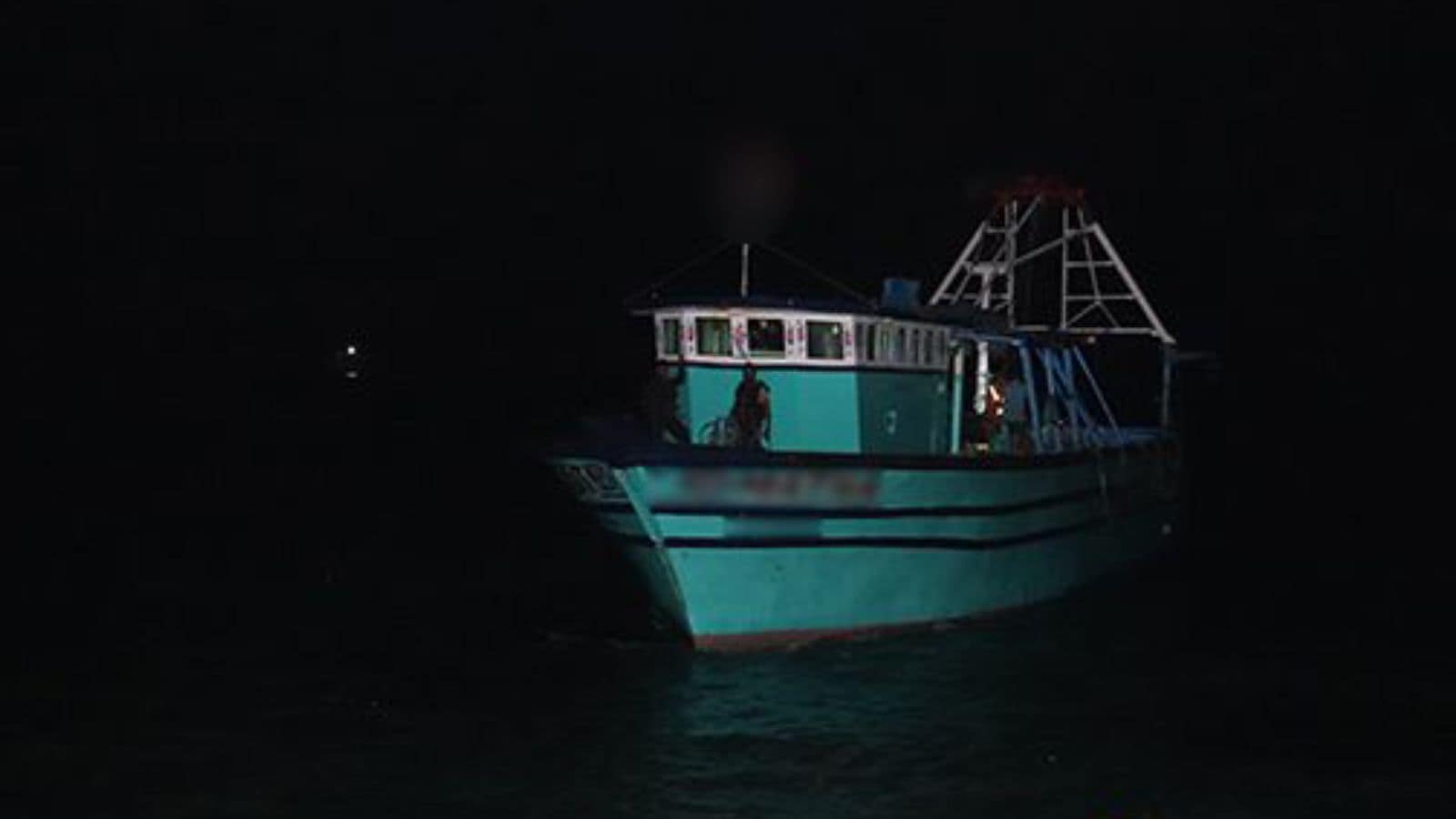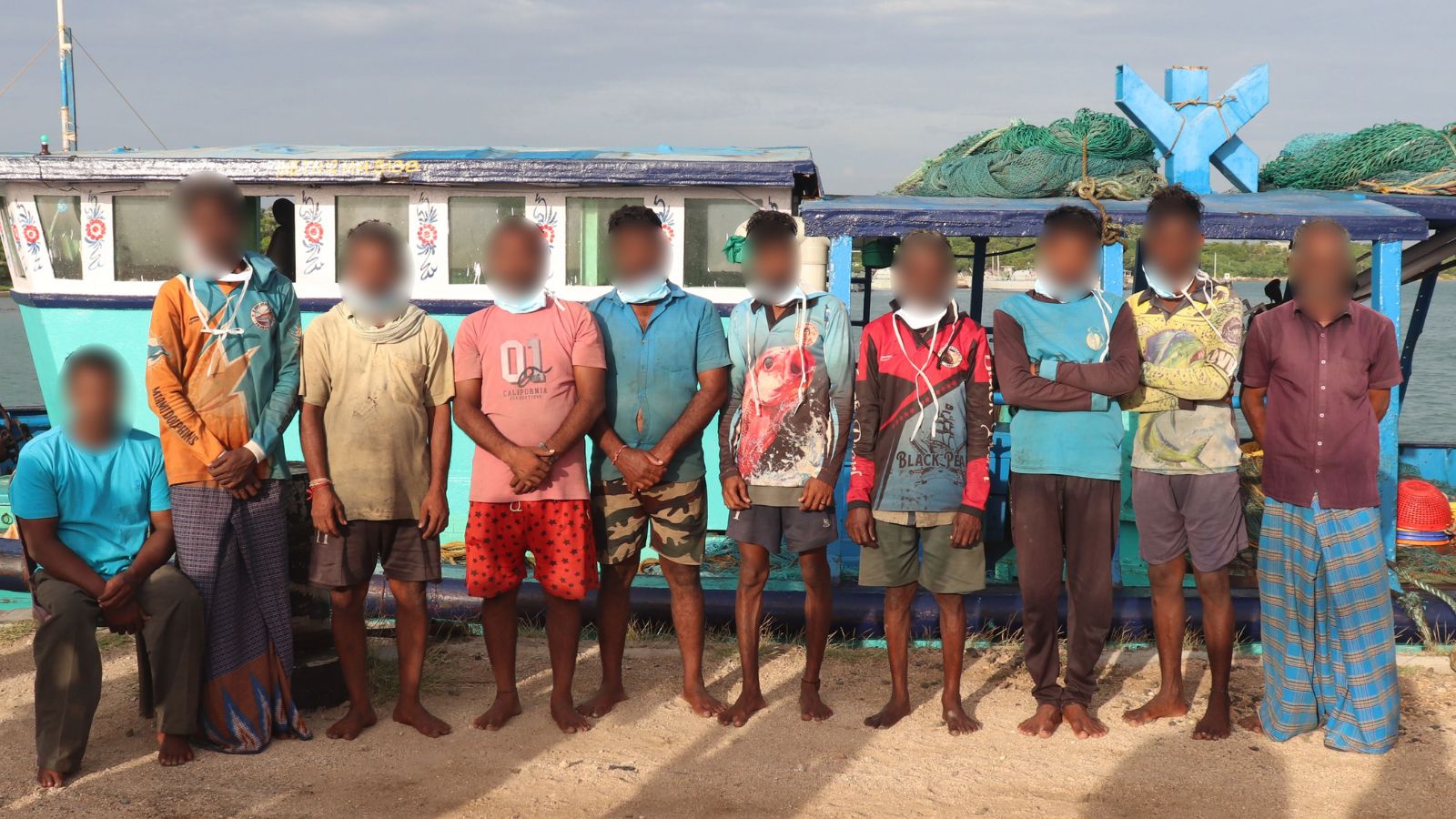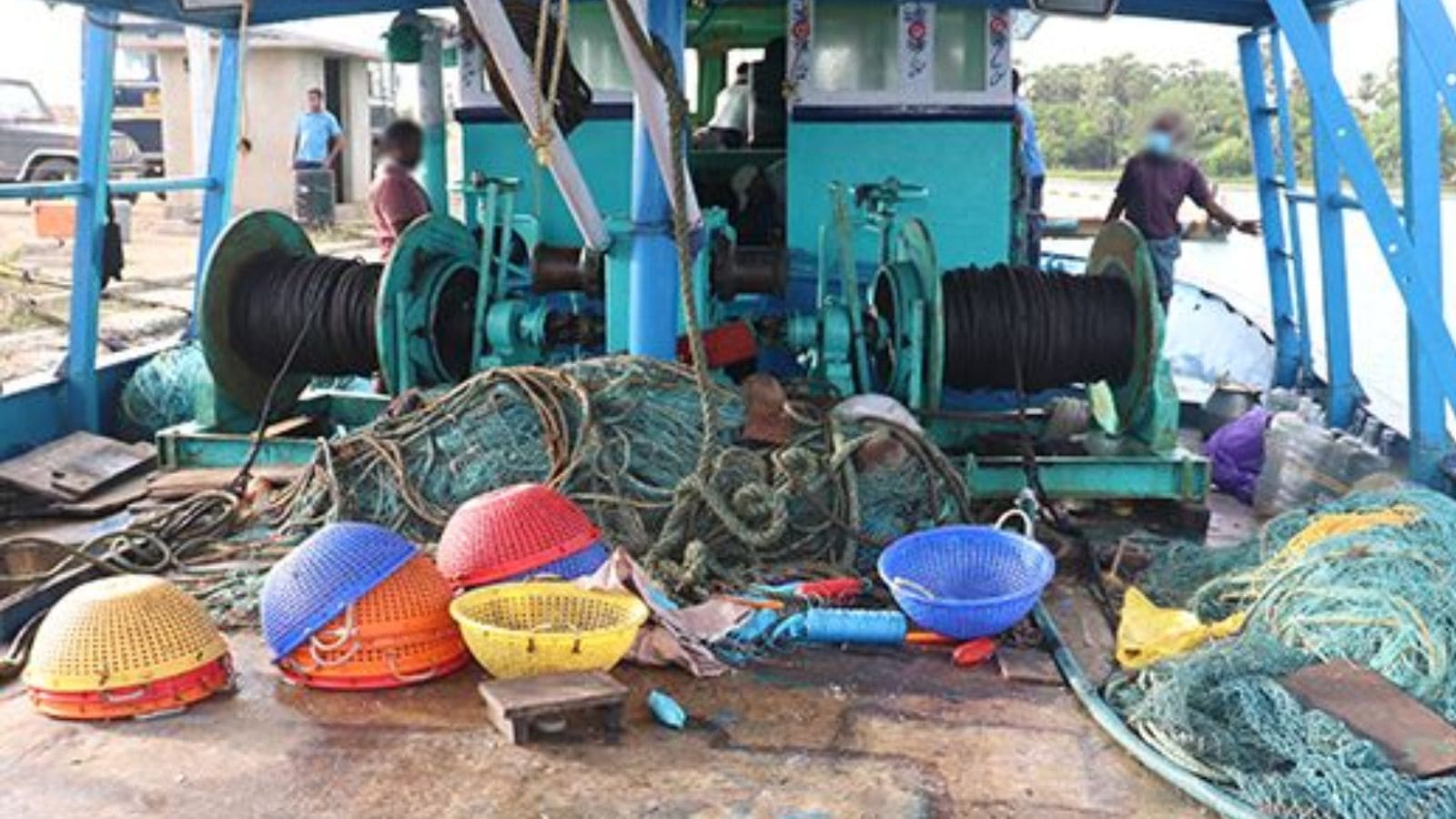The early hours of June 25 turned into a nightmare for ten Indian fishermen from Nagapattinam, Tamil Nadu, when a routine fishing expedition spiraled into chaos, ending in the death of a Sri Lankan Navy officer. The Sri Lankan authorities allege the officer died due to the “aggressive manoeuvres” of the trawler of Indian fishermen resisting seizure, but the fishermen, now in Sri Lankan custody and reportedly set to be charged with death, deny these allegations and insist they are innocent. .
According to a top Sri Lankan government source involved in the case proceedings in Jaffna, the Indian trawler was allegedly speeding when the Sri Lankan Navy attempted to intercept it around 1.30 am on June 25. The postmortem report of the Navy officer suggests the officer possibly died due to an accidental fall during the tense moments leading up to the interception, sources said.
 Madhi, who was awake at the steering wheel, reported seeing two Navy men with guns who announced their arrest. (Credit: Sri Lanka Navy – news.navy.lk)
Madhi, who was awake at the steering wheel, reported seeing two Navy men with guns who announced their arrest. (Credit: Sri Lanka Navy – news.navy.lk)
The boat driver, Madhi (40), provided a statement to Sri Lankan authorities, explaining that his trawler was heading back to Indian waters, turning from south to north, when the incident took place. He claimed the Navy boat, with its lights off, rammed into the trawler. At that moment, the rest of the crew was asleep.
Madhi, who was awake at the steering wheel, reported seeing two Navy men with guns who announced their arrest.
The fishermen were handcuffed and moved to the back of the boat, which was then taken to Kankesanthurai Harbor near Jaffna, arriving around 5 am, a sail that took longer than expected due to heavy winds and rough weather.

 The fishermen were handcuffed and moved to the back of the boat, which was then taken to Kankesanthurai Harbor near Jaffna. (Credit: Sri Lanka Navy – news.navy.lk)
The fishermen were handcuffed and moved to the back of the boat, which was then taken to Kankesanthurai Harbor near Jaffna. (Credit: Sri Lanka Navy – news.navy.lk)
“The boat driver says it was only upon arrival at the Sri Lankan harbor that they saw the Navy officers shifting an injured person from the Navy’s boat to an ambulance waiting there,” sources said, quoting the boat driver’s statement.
V Anandan, the trawler’s owner, expressed hope that the murder charges would not hold. “The fishermen left Nagapattinam harbor around 4 am on June 21 and were supposed to return by the evening of June 26,” Anandan told The Indian Express. “Over a dozen Indian boats were in the vicinity when the Navy intercepted our boat. Realizing the Navy’s actions, they all fled the scene.” They informed Anandan around 2.30 am that his boat had been seized along with the crew.
He said that the fishermen were usually paid a collection amount, which varies from Rs 3,000 to 10,000, or about 22 to 25% of the total profit, depending on the catch after a usually five-day fishing expedition.
The Sri Lankan Navy insists the Indian trawler was well within Sri Lankan waters when intercepted, more than 43 nautical miles from the Indian coast, which is Nagapattinam. Indian waters from Nagapattinam end at approximately 40 nautical miles. Pandian, a fisherman from Nagapattinam who frequently travels to the same region, argued that trawlers often venture into Sri Lankan waters during rough weather too.
“It is a fact that we venture into Sri Lankan waters for fishing in desperate times. But variation of 2-3 nautical miles should not have been a reason for the Navy’s action. It’s merely a matter of a 10-minute sail to return to Indian waters,” said Pandian.
The arrested fishermen, including seven from Nagapattinam, one from Cuddalore in Tamil Nadu, and two from Andhra Pradesh, were taken to the Kankesanthurai Naval base, and their trawler was seized.
In an official statement, the Sri Lankan Navy described the operation as an effort to “chase away Indian poaching trawlers from Sri Lankan waters”. During this operation, the statement said, a sailor from the Navy Special Boat Squadron sustained critical injuries due to the alleged aggressive maneuvers of the Indian trawler and later died at the Teaching Hospital in Jaffna.
 V Anandan, the trawler’s owner, expressed hope that the murder charges would not hold. (Credit: Sri Lanka Navy – news.navy.lk)
V Anandan, the trawler’s owner, expressed hope that the murder charges would not hold. (Credit: Sri Lanka Navy – news.navy.lk)
While the Sri Lankan Navy claims that they frequently encounter aggressive maneuvers by Indian trawlers, leading to injuries to naval personnel and damage to their ships, the Indian fishermen’s version tells a story of unexpected confrontation and arrest. The fishermen, now held in a facility at Mailadi near Kankesanthurai, await their fate. Their relatives in India were busy arranging legal assistance in Jaffna.
The incident occurred a day after Tamil Nadu Chief Minister MK Stalin wrote to Union Minister for External Affairs S Jaishankar, urging him to secure the release of 47 fishermen and their boats currently in Sri Lankan custody.
The fishermen issue remains a contentious point in India-Sri Lanka relations, marked by incidents where Lankan Navy personnel have fired at Indian fishermen in the Palk Strait and seized their boats for allegedly entering Sri Lankan territorial waters. The Palk Strait, a narrow waterway separating Tamil Nadu from Sri Lanka, is a rich fishing ground for fishermen from both nations. However, the waters are fraught with conflict, as fishermen from India are often arrested for inadvertently crossing into Sri Lankan territory due to the proliferation of bottom trawlers on the Indian side.
The Sri Lankan Navy reported that they have arrested over 200 Indian fishermen and seized 27 trawlers for illegal fishing in Sri Lankan waters this year alone. In 2023, the Navy apprehended 240 Indian fishermen and confiscated 35 trawlers on similar charges.
